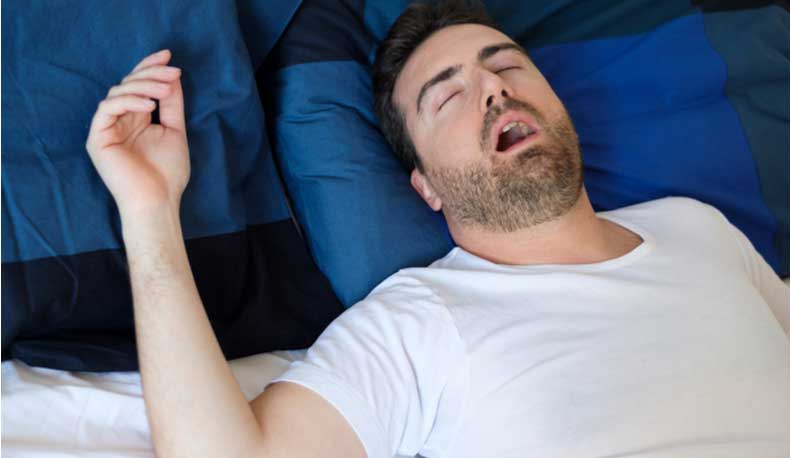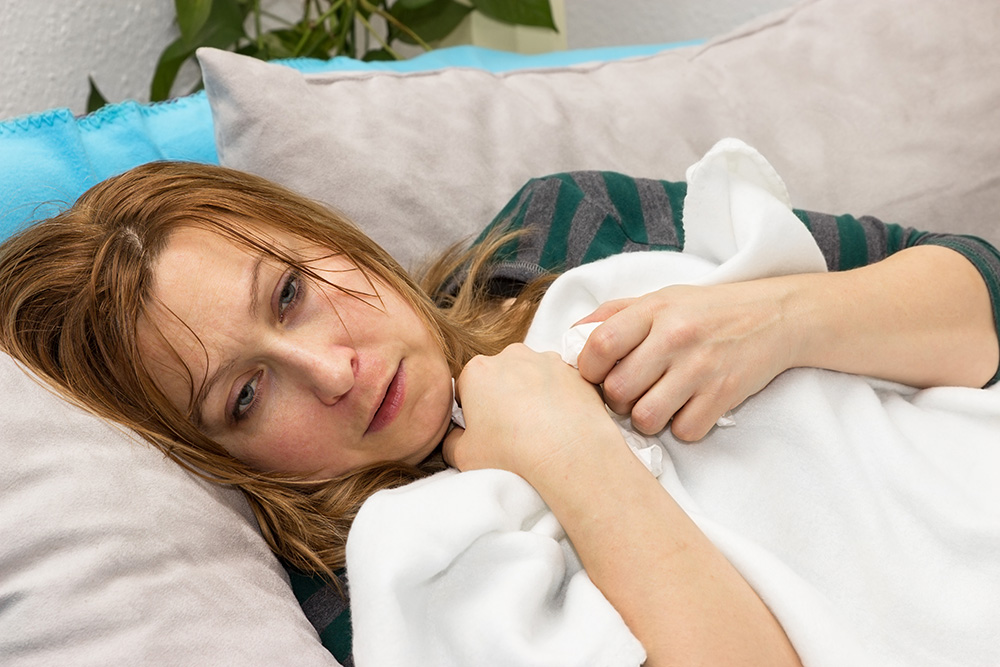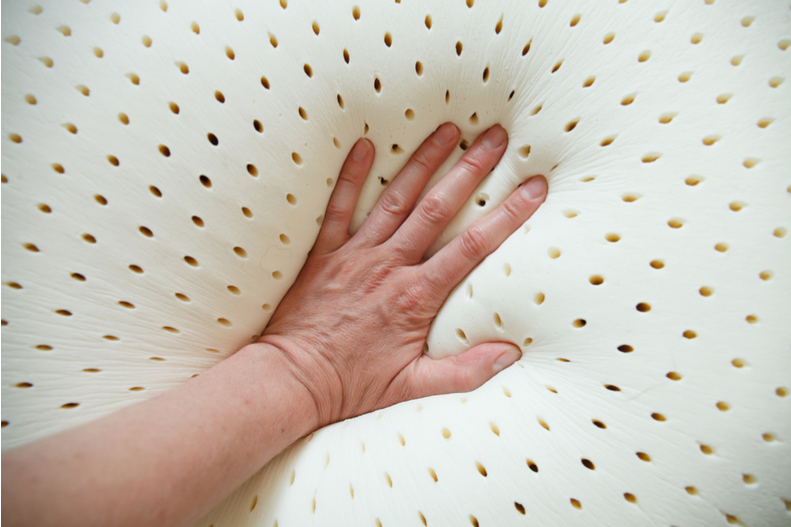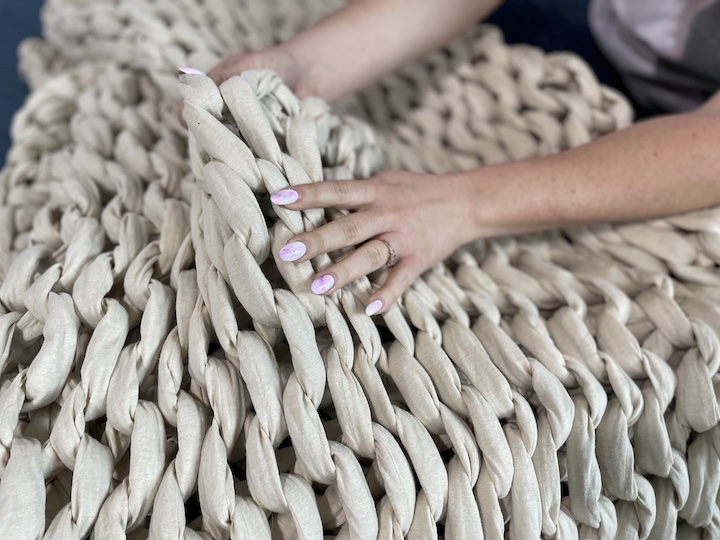Is excessive heat preventing you from getting that much-needed shut-eye? Luckily, there are numerous effective strategies to help you stay cool and comfortable during those hot nights.
In this guide, we will explore a range of practical and easy-to-implement tips that will enable you to beat the heat and reclaim the refreshing sleep you deserve. From optimizing your sleep environment to incorporating specific cooling techniques, we will delve into proven methods for keeping cool to ensure you wake up revitalized and ready to embrace the day.
Why Do I Get So Hot While I Sleep?
While you could be getting hot simply because of the temperature of your environment, there are numerous other reasons you may be overheating during your sleeping hours.
Sharing Your Bed
The human body generates heat, which is an essential function as it helps to keep us alive. But sleeping next to someone who is also generating heat can lead to some pretty uncomfortable and sweltering nights.
If you share a bed with a partner, ensure you are sleeping on one of the best mattresses for couples. If you are looking for more tips for getting a good night’s sleep next to your partner, read our Couples Sleep Guide.
Sleep Apnea
If you are sweating excessively at night, it could be a sign of Obstructive Sleep Apnea (OSA). If you are experiencing chronic night sweats in conjunction with other symptoms such as snoring, choking, gasping and frequent bathroom visits, it may be time to visit a doctor.

Anxiety
Anxiety can affect sleep in many different ways, often leading to insomnia. Intrusive thoughts and overthinking caused by stress can lead to night sweats, creating an uncomfortable night’s sleep.
Night Sweats
Night sweats can be caused by a variety of conditions, including bacterial infections, infectious diseases, cancer, anxiety, neurological conditions and OSA. They can also be caused by hormone imbalances, and they certainly affect your temperature at night and your overall quality of sleep.

Fluctuating Blood Sugar Levels
Fluctuations in blood sugar levels can heavily impact your sleep, and those that have low blood sugar levels during the night often struggle with night sweats.
RELATED: Blood Sugar and Sleep.
Illnesses or other Health Complications
Illnesses and other health complications can also have an impact on your temperature during the night, which can affect sleep.
Cold or Flu
Viral illnesses such as the cold and flu often cause night sweats because of an increased body temperature. This is only temporary and should go away as you recover from the illness. You can also take anti-fever medications to increase your comfort levels during this time.
RELATED: How to Sleep When You’re Sick
Diabetes
People with Type 2 diabetes often experience night sweats because of low blood glucose levels caused by insulin intake. If you experience this on a frequent basis, you should consult with your doctor as it could indicate an imbalance of the medication.
Hyperthyroidism
Hyperthyroidism can cause people to sweat across their whole body. This often occurs during the night, which can create an uncomfortable night’s sleep.
Menopause or other Hormonal Changes
Changes in estrogen and progesterone during menopause can cause fluctuations in body temperature at any time of the day or night. This can be particularly disruptive to sleep, but Cognitive Behavioral Therapy for menopausal women may decrease sleep disturbances.
Medications
Certain medications can affect body temperature or perceived body temperature, which can make you feel hot or sweaty during the night.
Why Is It Important to Stay Cool at Night While Sleeping?
You might not actually feel bothered by your temperature at night, but it’s still an important aspect of getting a good night’s sleep. This is how staying cool at night can positively affect your sleep.
How Does Staying Cool Affect Sleep?
Studies indicate that sleeping in a warm environment lowers the amount of REM sleep that your body is able to get. Experts advise that the best temperature to sleep in is between 60 – 67 F.
Are There Any Potential Health Risks to Continuously Sleeping Hot?
Sleeping in high temperatures can affect the amount of deep sleep you get during the night as well as lower the amount of time you’re able to stay asleep. Over time, this could cause an accumulation of sleep debt.
10 Tips to Stay Cool While Sleeping
Looking to stay cool for a peaceful night of sleep? Here are our top 10 tips.
#1. Keep Your Bedroom Dark During the Day
If your curtains are open all day, your room can heat up significantly, leaving you feeling uncomfortably warm at night. If you are going to be out of your bedroom during the day, use blackout curtains to keep the light out and prevent your room from heating up.
#2. Add a Fan
Fans can increase airflow and cool down your room quite nicely. But if you would like a device that specifically cools down your bed, consider getting a BedJet Climate Comfort System.
#3. Lower Your Thermostat
Lowering your thermostat closer to bedtime can help you to get a higher quality of sleep. The ideal bedtime temperature is between 60 – 67 F.
#4. Wear Breathable Clothing
Staying comfortable during the night is essential to getting a good night’s sleep, and what you wear to bed can greatly affect your comfort levels. Try wearing breathable clothes like Cozy Earth Loungewear or Brooklinen Loungewear. If you’d prefer to go with the coolest option, then it might be time to try sleeping naked.
#5. Sleep Barefoot
While it’s not bad to sleep with your socks on in certain circumstances, it could inhibit circulation and make you overheat. If you already struggle with staying cool during the night, it might be time to hit the sack barefoot.
#6. Stay Hydrated
Dehydration can dysregulate your body temperature at night, causing you to feel either too hot or too cold. Ensure that you drink enough water during the day.
RELATED: Hydration and Sleep
#7. Avoid Certain Food and Drinks before Bed
The consumption of alcohol, caffeine and spicy food can cause night sweats and disrupt your thermoregulatory system. If you are looking for a drink to consume close to bedtime, it’s best to stick to herbal teas or anti-energy drinks.
#8. Take a Warm Bath before Bed
Taking a warm bath before bed helps lower your core temperature, which acts as a circadian sleep signal and makes you feel tired.
#9. Try an Ice Pack or Cold, Wet Towel
Placing an ice pack or a cold, damp cloth against your skin during the night can help to keep you cool.
#10. Adjust Your Medications (With Your Physician’s Approval)
If you take medications that interfere with your thermoregulatory system, it might be time to speak to your doctor about adjusting your intake. It’s important to note that this should be done under the guidance of a qualified medical professional.
Six Cooling Products to Help You Sleep Cool
If you struggle to stay cool during the night, it might be time to invest in some of these cooling products:
Mattress
Invest in one of the best cooling mattresses to keep your temperature regulated during the night. Common cooling materials include gel-infused memory foam, aerated foam and latex.

Mattress Topper
If you’re not ready to buy a whole new mattress, consider getting a cooling mattress topper to help dissipate the heat.
Sheets
Sleeping with thick sheets can make you feel hot and stuffy at night. Consider getting one of the best cooling sheets to keep you cool.
Blankets
If you need the calming benefits of a weighted blanket without the additional heat, then you may want to consider getting a cooling weighted blanket.

Pillows
Tired of feeling hot, sticky and sweaty on your pillow? Consider getting one of the best cooling pillows to help you feel cool and comfortable.
Comforters
An oversized fluffy comforter may not be what you need if you’re struggling to stay cool during the night. Instead, invest in one of these cooling comforters.
FAQs
How can I stay cool while sleeping without AC?
If you don’t have an AC, you can still stay cool during the night. Take a warm bath before bed to cool your core temperature, use a fan in your room during the night, or place a damp cloth on your forehead to help keep your temperature down while you sleep.
What mattress materials help me stay cool at night?
Cooling mattresses work well if they are made from suitable materials. Consider buying a cooling mattress made with CELLIANT, lycra, Tencel, Phase Change Material, copper, graphite, latex or ventilated memory foam.
What bedding fabrics are most breathable?
If you are looking for the most breathable material for bed sheets, consider getting something made from Upland Cotton, Egyptian Cotton, linen, silk, bamboo or Tencel.
How can I prevent overheating if I am sharing a bed with someone or my pet?
Use separate bedding, practice proper sleep hygiene, invest in a good mattress, wear a sleep mask, get a white noise machine and consider sleeping without any clothes on.

